Last month, I was invited to give a guest talk at the University of Alberta on how I managed to publish while I was a Ph.D. student. This talk was for a grad seminar called “Academic and Professional Writing,” which is currently being taught by Dr. Micah True in the Department of Modern Languages and Cultural Studies.
Read Morephdlife
The Life of an Academic: Defense Tips /
In anticipation for my thesis defense, which was scheduled on July 18th, I experienced a wave of emotions: from impending doom and doubt, to a state of euphoria, and RELIEF. This blog is motivated in part by my own experience of having successfully defended my thesis in Comparative Literature at the University of Alberta, and to demystify the culture of fear and anxiety surrounding the “big day” because I’m probably not the only one who was uncertain about what happens behind closed doors. Here are my top five pieces of advice that I hope will help you prep or relax. So grab your glass of wine, or cup of tea and be calm, and read on.
Finally some sunshine in Edmonton!….on the day that I’m scheduled to fly back to Toronto!
1. What Happens Behind Closed Doors is No Mystery.
I often found that when I asked about what happens during a defense it resulted in more questions and confusion than answers. This can be stressful especially in preparing for the defense, but here are few things in to keep in mind.
All the information about the defense procedures for the department of Modern Languages & Cultural Studies (MLCS) can be found here, here, or here !
In short, the thesis defense begins with your arrival to wherever you are scheduled to be. Arrive ten fifteen minutes early to set up a presentation, if you have one. Once everyone is present, the non-examining chair will ask you to leave the room briefly, and s/he will call you back in when the committee is ready. From there, you may be asked to give a short presentation if you’ve prepared one, and this is followed by the members of the committee asking you questions in order of the member least closest to you. There will be two rounds of questions, and you’ll be asked to spend approximately 10-12 minutes for each question. In-between the first and second rounds, the non-examining chair will ask if you’d like a break. My committee and I didn’t, so we proceeded with the second round. After the second round of questions, you’ll be asked to leave the room while the committee deliberates. And, once they reach a decision they’ll call you back in and announce the results. My defense began at noon and it ended at around 2:30-2:35-ish.
2. How do you Prepare for the “Big Day?”
Get advice from friends who have recently defended, or the best thing you can do is to consult with your supervisor first and ask him/her questions or concerns that you might have about the defense. They’ve supervised dozens of grad students and have lots of experience. Plan early and schedule a meeting with him/her, and don’t be afraid to ask questions. Your supervisor is your greatest supporter. In addition, give yourself some time between the day you submit your thesis to your non-internal external(s) and the day of the defense. My defense was scheduled two months after I submitted my thesis to the non-internal external, and during those two months, I worked on other projects, publications (and played some Zelda BOTW). Two weeks before the defense day, I re-read my thesis and took note of the kinds of questions that I thought I might be asked. For example, these questions stemmed out of the kinds of assumptions I made in my reading/interpretation of texts and theories. Reading my thesis with “fresh eyes” was effective because I was able to predict, or tailor my response to three, or four out of the ten questions that were asked during the defense. So, channel your inner Sherlock Holmes and start looking for clues!
3. Treat the Defense with Respect, Not Fear.
It might seem impossible but try to relax. (I know this is easier said than done). I was so excited to defend; that is, until I landed in Edmonton …and then it all started to feel “real.” Several days prior to the defense, I think I may have gotten four to five hours sleep a day due to jet-lag and nervousness. There is no single solution to getting over your nerves, but perhaps the best advice I received was from a colleague that I ran into on my way back to my hotel. He told me, “Go into the exam with respect not fear or anxiety” (Thank you Andreas!). Remember that your committee and externals wouldn’t have agreed for you to defend, if they felt you weren’t ready. During my defense, I felt that my work was respected by everyone on the committee, and although some questions were a bit harder than others to answer, the questions they asked all came from a genuine place of interest and inquiry. For me, the defense itself went much smoother than I had anticipated, so breathe!
4. During the Defense
Answer questions using the T-model. This is one piece of advice that my supervisor gave me, which I found incredibly helpful. Simply put, because you have such a limited time to answer questions, begin with a “general” statement, then, narrow it down by providing an example. Remember to be succinct and clear (though I must admit, the first question was the hardest one for me to answer only because my nerves got in the way, but I quickly found my rhythm).
5. After the Defense
If you’re not one of the lucky few who got a tenure track job straight out of your PhD program, then, you’ll want to be proactive about taking your next steps, especially for those who still want to pursue an academic career. As I mentioned before, schedule a meeting with your supervisor (or rather, who is now your colleague) and get tips about turning the thesis into a book, about collaborating with him/her on research/publication initiatives, and find ways to develop your teaching dossier.
Good luck! And remember to eat well and “relax.”
To Sheffield and Beyond! /
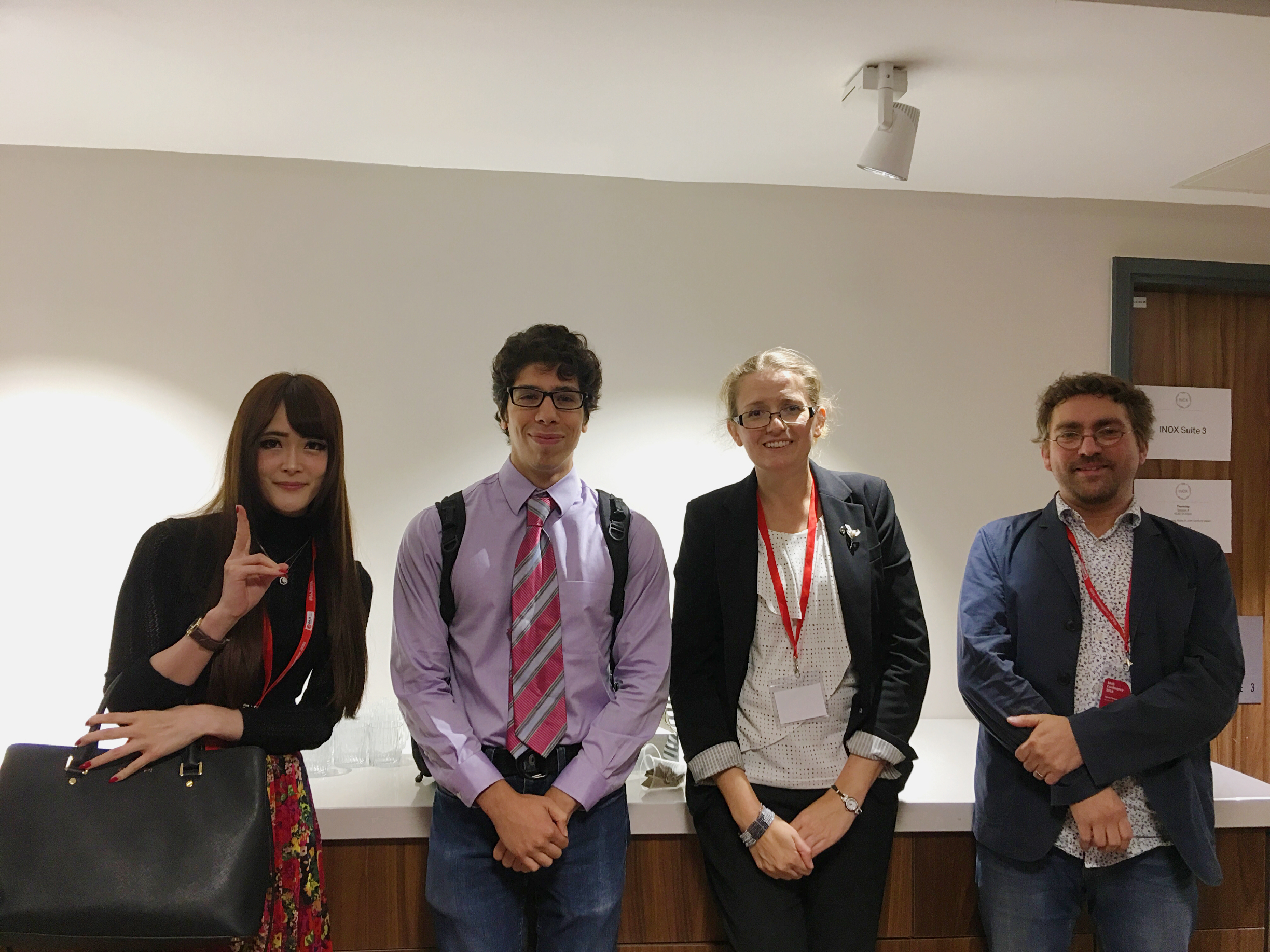
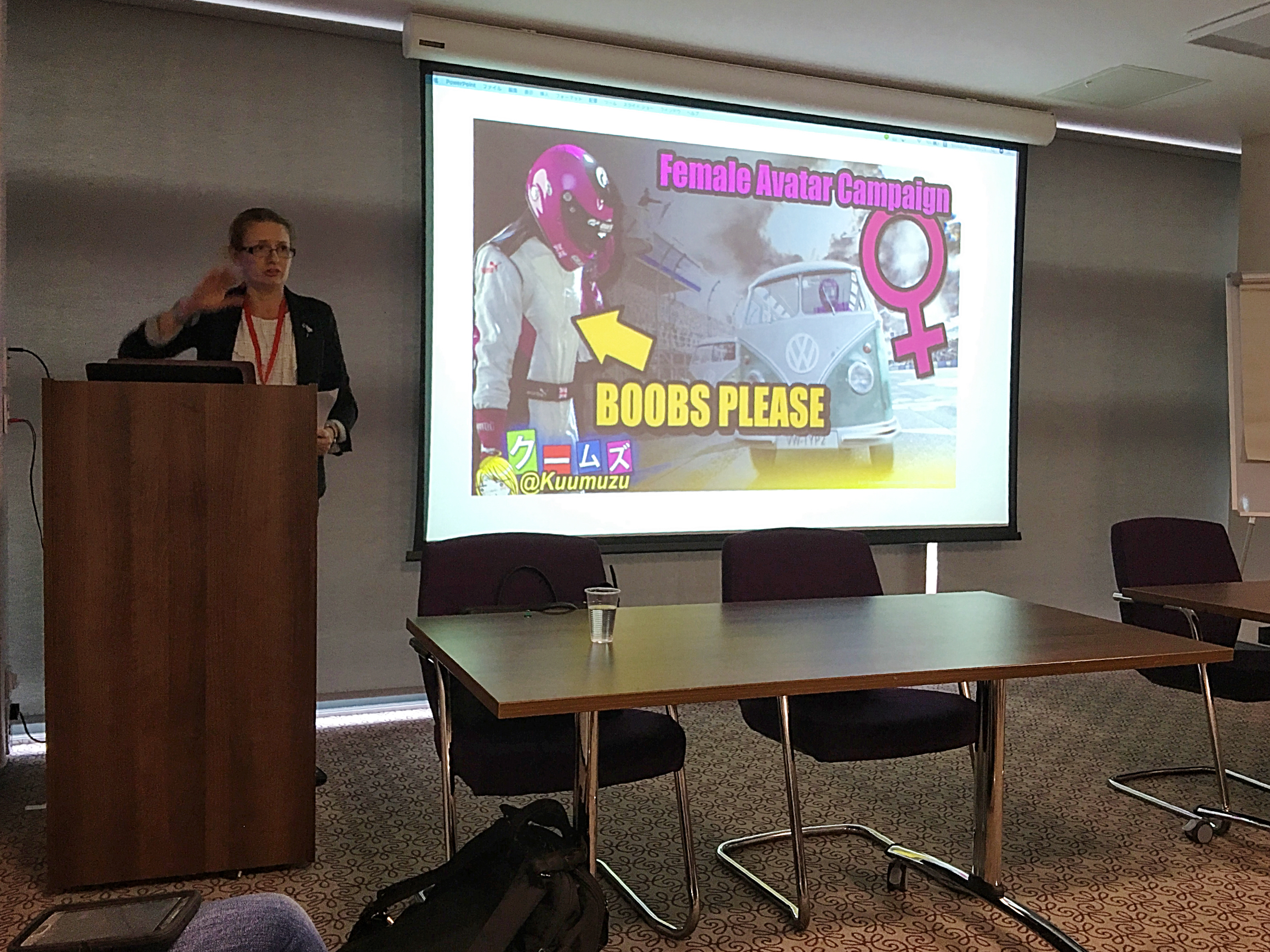
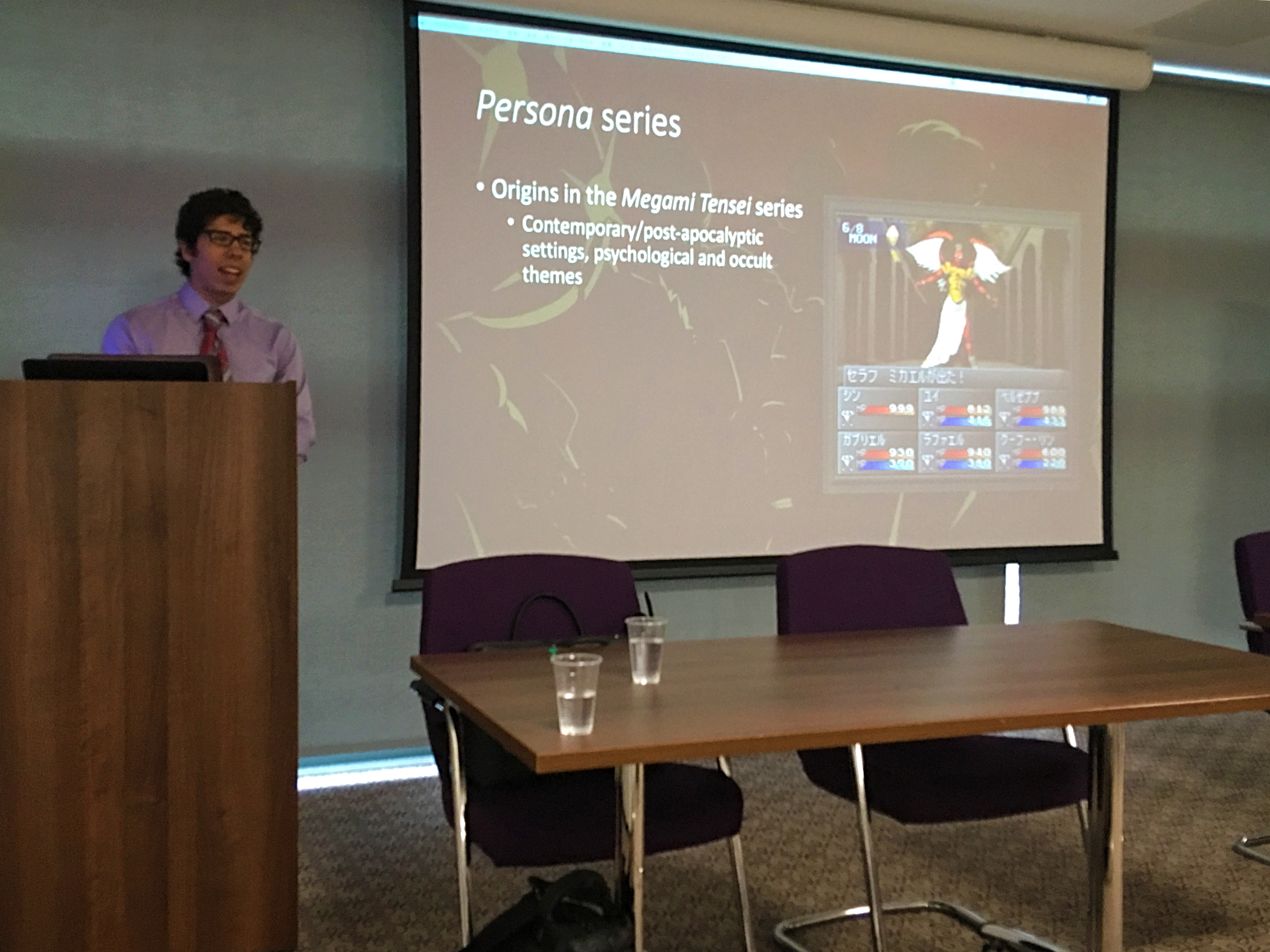
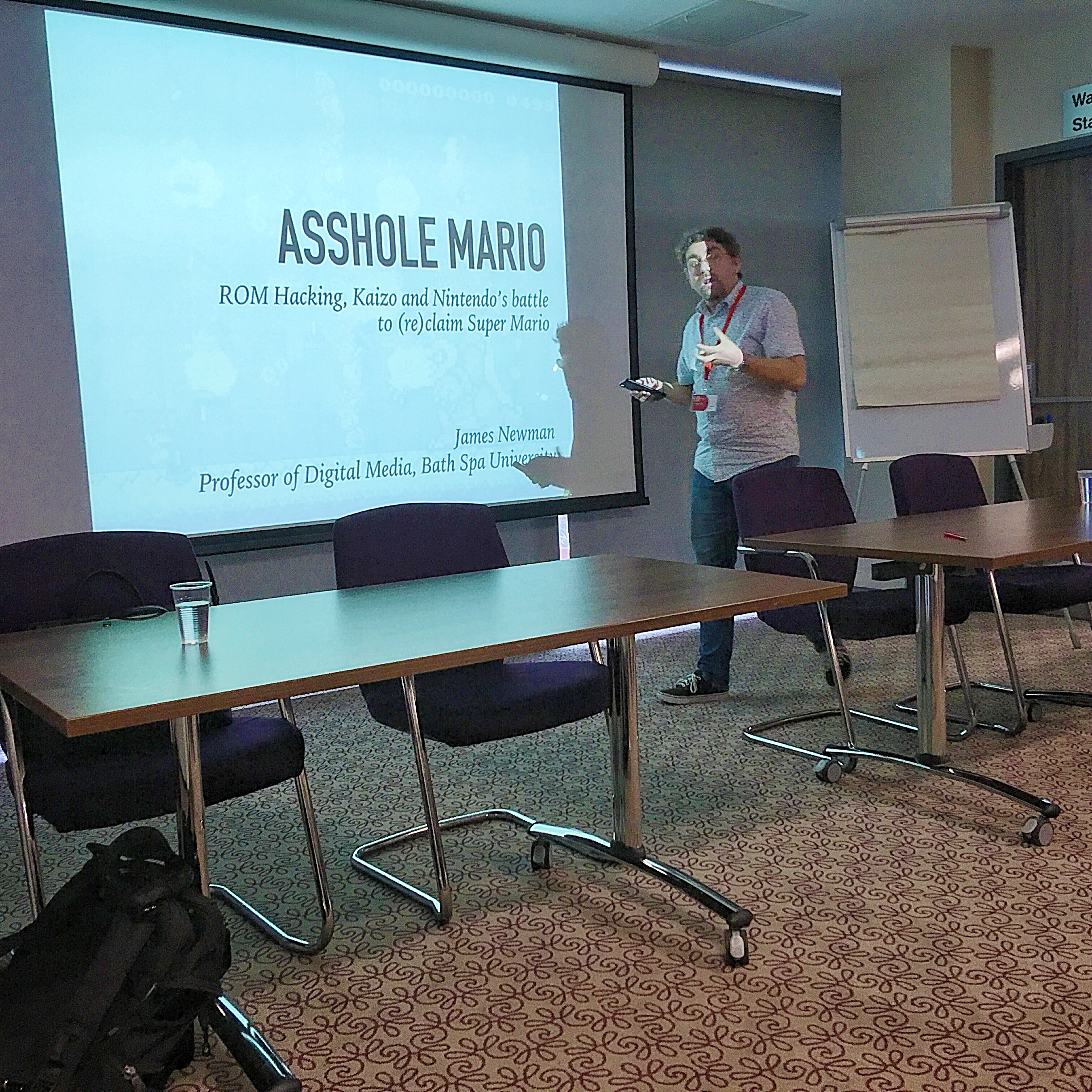
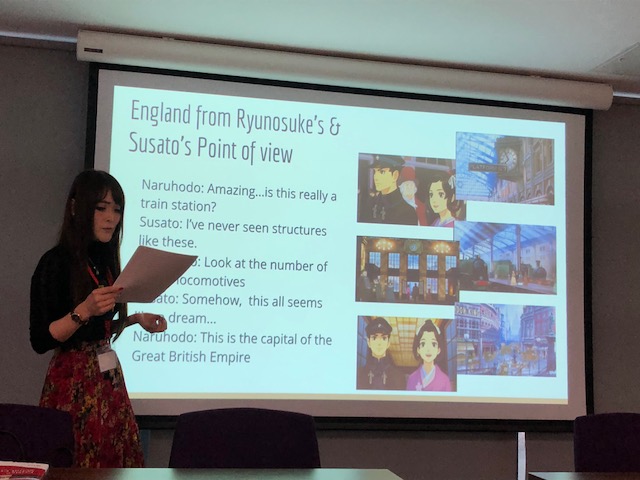
One week ago, I flew out to Sheffield, England to attend a conference organized by the British Association for Japanese Studies. The conference was held between September 5-7th, and it was my first BAJS conference. I met many friendly people there and made some great connections. What’s more, I was part of an amazing panel organized by Dr. Rachael Hutchinson and presented alongside Dr. James Newman and Frank Mondelli. In the spirit of Replaying Japan, our panel explored the conference’s theme (Crisis? What Crisis? Continuity, and Change in Japan) through various critical interpretations of Japanese video games. Scroll down to see what our panel was about!
Aside from our panel, what I particularly liked about the conference were the keynote presentations by Dr. Gennifer Weisenfeld and Dr. Yoshitaka Mori who delivered very different, but informative discussions about how crisis is represented in Japanese visual culture and media, and its relationship to wider national/political discourses. I learned how “disasters are opportunities for radical change and profit” and that “crisis produces new markets using fear as a mobilizing force” as explored in Dr. Weisenfeld’s talk on boukuu domesticity. According to Dr. Yoshitaka, one site of crisis in Japan today is democracy, as he explained how it is associated with leftism and radicalism, which I find quite alarming. The Q & A session facilitated by Dr. Christopher Harding added critical depth and insight to the discussions as well.
In addition to the keynote speakers, I was impressed by the sheer diversity of panels that explored crisis in Japan in so many different ways. Panels that caught my eyes ranged in topics from “Portrayals of Queerness in Popular Culture and the Potential Dangers of New Queer;” to “Generative Fictions: Representations of Pregnancy in Modern Japanese Literature and Manga;” to “The Kimono and its Industry in 21st century Japan--Tales of Crisis Change and Subcultural Appropriation;” to “Major Effects of Minor Changes: The Decision-Making Process under the Second Abe Administration.” I also appreciated the poster sessions that displayed the work of grad students in a really fun and interactive way.
Overall, my first BAJS conference experience was really great and I look forward to the next one.
For more information about the British Association for Japanese Studies, see here.
Thanks to the BAJS Council for the travel bursary.
Stay tuned for my next blog about my encounter with Sherlock Holmes…
In case you missed it here’s our panel abstract:
“This panel examines the Japanese video game industry from the perspective of cultural content and game design, showing how creativity in characterization, world-building and level of difficulty can lead to social critique and industry innovation. Mimi Okabe first analyzes popular titles from the Phoenix Wright (Gyakuten Saiban) series, demonstrating Japan’s ongoing crisis of identity from Meiji to the present, situating Japan on the axis of Orient-Occident and problematizing the imperial past of both England and Japan. Frank Mondelli examines ideology and social critique in Persona 5, set in a politically corrupt contemporary Tokyo in which the player-character must act as an ethical individual to progress. Rachael Hutchinson shifts the discussion to matters of genre, asking which video game genres are more conducive to social or political critique. Racing and fighting games are set against roleplaying, tactical and strategy games, all of which deliver nationalistic or counter-discursive ideology in different ways. Finally, James Newman considers Nintendo’s response to fan creativity in the production of Kaizō game levels in Super Mario Maker – impossibly difficult hacks which could have caused a crisis for Nintendo’s friendly image. Newman demonstrates that Nintendo, far from being a slow monolith incapable of change, seized the opportunity to counter the crisis with corporate flexibility, ultimately reinforcing its own design principles. Together, the papers in this panel aim to show the Japanese game industry as a creative force for social critique and fan engagement, a dynamic site for exploring and problematizing crisis in contemporary Japan” (British Association for Japanese Studies Conference 2018, p. 45).


